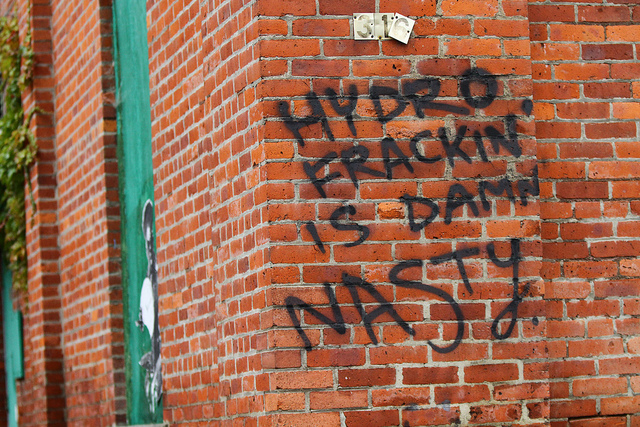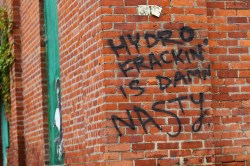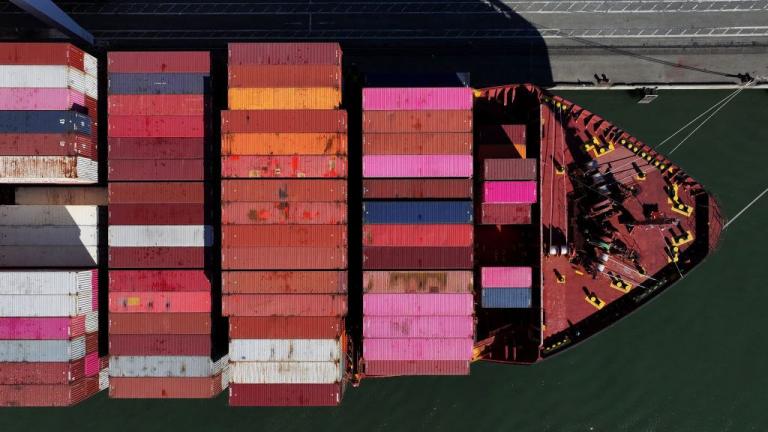While all the damage hydraulic fracturing could do to the Earth is pretty well-covered, we mostly overlook the risks it poses to fracking workers. Each well requires thousands of tons of fracking sand full of fine silica, which can penetrate lungs and lead to incurable silicosis and even lung cancer.
To find out how much those frackers were at risk, Eric Esswein, a workplace safety and exposure expert with the National Institute for Occupational Safety and Health (NIOSH), strapped on a face mask and dug in. NPR reports:
He and his colleagues visited 11 fracking sites in five states: Arkansas, Colorado, North Dakota, Pennsylvania and Texas. At every site, the researchers found high levels of silica in the air. It turned out that 79 percent of the collected samples exceeded the recommended exposure limit set by Esswein’s agency.
There were some controls in place, says Esswein, who notes that “at every site that we went to, workers wore respirators.”
But about one-third of the air samples they collected had such high levels of silica, the type of respirators typically worn wouldn’t offer enough protection. …
Workplace inspectors with the Occupational Safety and Health Administration wouldn’t have been aware of this potential risk for fracking workers before this recent study because, unless they receive a complaint or there’s an accident, they generally don’t see the process of hydraulic fracturing. That part of setting up a well happens quickly — and once a well is up and running, contractors move on to the next one.
Government officials and the fracking industry say they’re now working together to reduce workers’ exposures. They started with quick fixes, like putting up warning signs and simply closing hatches on sand-moving machines.
Not only did most of the airborne silica samples exceed NIOSH’s recommended levels, but almost half exceeded the maximum levels set by OSHA, and a third exceeded NIOSH’s recommended level by a factor of 10 or more. Gee, thanks Mister Fracking Industry! All this cancer will go great with my firewater!
Workplace safety experts say the Occupational Safety and Health Administration rules for silica should allow about half of what they do now, but OSHA’s updated regulations have been stuck in review for more than two years.
The New York Times took OSHA to task in a scathing longread about the watchdog agency’s failures when it comes to long-term health threats: “Partly out of pragmatism, the agency created by President Richard M. Nixon to give greater attention to health issues has largely done the opposite. OSHA devotes most of its budget and attention to responding to here-and-now dangers rather than preventing the silent, slow killers that, in the end, take far more lives.”
Just another dirty cost of all that “clean” natural gas.




